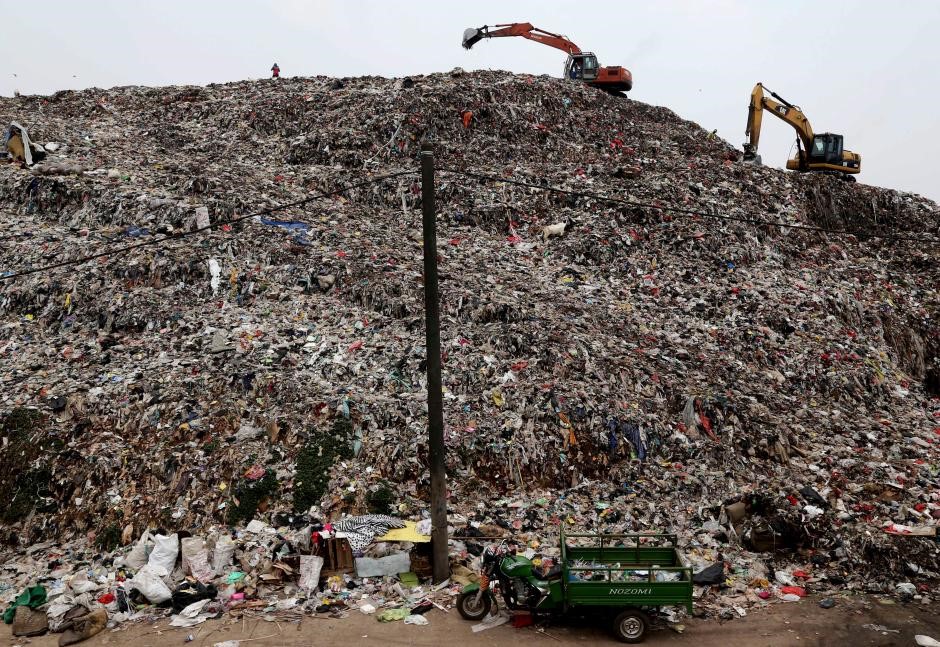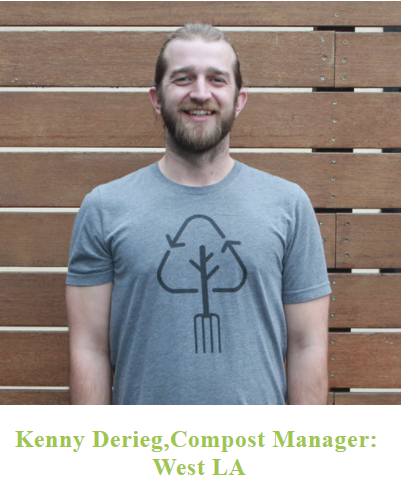
Organic material in landfill emits greenhouse gases.
Forty percent of the food that is grown in the United States goes into landfill. How does that happen? Perhaps Americans aren’t as frugal as prior generations?
The leftovers in a refrigerator generally go into the black trash bin, which makes the trip to landfill – and those leftovers are organic and cause methane gas.
Methane is considered a greenhouse gas and in the first two decades after its release is 84 times more potent than carbon dioxide.
Therefore, addressing methane is an effective way to slow the rate of global warming, according to West L.A. Compost Manager Kenny Derieg, who spoke to those who had signed up on Resilient Palisades last Thursday.
Residents who want to help the environment can follow Derieg’s easy advice – try to recycle everything, even if composting is not something they want to do in their yard.
“It’s so convenient for us to throw things in the trash,” Derieg said. “We don’t even know where it goes.”
He pointed out that landfill is a linear economy – “It’s not renewable, not regenerative. We use something once and then throw it away. We need to give our resources the longest life possible.”
“L.A. is running out of landfill [locations], Derieg said, noting that the now-closed El Puente landfill at the intersection of the 60 and 605 freeways was the largest in the nation.

Derieg said that L.A. has purchased land to be used for garbage that is east of the Salton Sea, in the southeast corner of the state. “There are plans to put the garbage on a train and haul it to this area in 2027.”
He explained the importance of composting, which involves taking food scraps, grass, leaves, twigs and even cardboard, layering it like lasagna and stirring it occasionally. The result is dirt filled with micronutrients that has essential elements needed by plants. “There are fungi and bacteria, protozoa, nematodes, which are invisible to the naked eye, that are releasing nutrients.”
But can’t a person just buy fertilizer and get the same nutrients? “We’re diverting food waste from landfill, and compost turns into beautiful soil,” Derieg said. “Synthetic fertilizers support the plants, but they strip the soil. We’re ignoring the soil.”
With composting, “nutrients go back in the soil,” he said. “Think of it as recycling.”
The benefits of composting are: 1) it enhances food nutrition; 2) increases crop yield; and 3) enhances a plant’s immune system. “We’re taking carbon dioxide out of the air and putting it back in the soil where it belongs,” Derieg said.
He explained that composting material can be divided into two groups:
1) Brown, which includes anything from a tree, even brown paper bags and cereal boxes; and
2) Green, which includes grass clippings, fruit, coffee grounds and tea leaves.
The two groups are added to a compost pile in a 1-to-1 ratio and placed in layers. He gave tips for monitoring moisture level, keeping the odor down and reaching the correct temperature to achieve decomposition. (Visit: lacompost.org.)
If you don’t want to immediately start composting, there’s a service that will pick up table scraps directly from your home for a fee. (Visit: compostablela.com)
Or if you collect food scraps (vegetables and fruits) and eggshells, they can be placed in the green bin. The City is supposedly composting the yard trimmings to be used for soil amendments.
These items are not compostable: 1) plastic; 2) cat litter; 3) dog poop; 4) meat; and 5) dairy.
Derieg advises: try to avoid using the black trash bin (which goes directly to landfill) and be conscious of not wasting food and leftovers, because they will eventually contribute greenhouse gases in landfills.

Remember , in the 1960’s and and before Angelenos were required to separate food waste from regular garbage. One of Mayor Yorty’s campaign promises was if elected he would do away from separating garbage , and that is what he did. Does anyone remember that ? I was five years old !
Thanks Sue for shedding light on this. Find neighborhood local compost hubs you can take your compost to (or create a local site yourself) at makesoil.org!